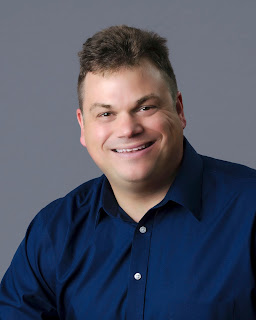1. What role has PRSA had in your career?
has been a defining influence on my career from the beginning. My involvement in and the mentorship of Dr. R. John DeSanto led me to change majors at St. Cloud State University from business management (I was going to be a hospital administrator) to mass communications. The real-world work done through the student agency, newsletter, and case studies energized my resume with real-world experience.
My first internship (which led to my first job) came because one of my professors was in APR classes with Deborah Ely Lawrence at the Minnesota Education Association. From there, I was hired by Bethel University in the wake of a lawsuit where I created and executed the institution’s first strategic, proactive PR plan – which I knew how to do thanks to a marathon brainstorm session with David Hakensen over lunch (which he bought).
My big break into health care came about because 1) I had served on several committees with Barbara Tabor who was leaving, and she recommended me without me having applied; and 2) The hiring manager at Blue Cross, Karl Oestreich, counted my APR as an equalizer when I was the youngest finalist they brought in to interview. The move to agency came through a longtime PRSA committee partner, Rose McKinney, where I had the privilege to work with Eva Keiser, Brant Skogrand and other PRSA leaders. All but one of the progressive jobs in my career came about because of PRSA. In addition, St. Cloud State University counted APR as equivalent to a master’s degree in my field to allow me to teach as an adjunct. In short, PRSA has defined my career path and strategic growth.
2. What are some of the key lessons that you have learned in your career?
- Lifelong learning has to be a core value of a PR practitioner: The knowledge, channels, and even best practices of our industry are fluid – they change as our culture and technology changes.
- It’s a small market, so making advocates and acting professionally will determine the limits of your opportunities.
- Other people have usually already done what you need to do; benchmark and borrow inspiration often.
- Own up to mistakes before your client/employer finds them. And, you will make mistakes.
- Career paths can be unpredictable – take risks if you want to get ahead and gain a measure of control over your career.
3. You're an adjunct instructor at St. Cloud State University, University of Northwestern (St. Paul) and Inver Hills Community College. What reflections do you have on being an instructor?

|
| Joel Swanson, APR, MACT |
I started teaching because I found that one of my favorite job responsibilities was mentoring and leading staff. I find I learn and am energized by the students, and they become clients or colleagues over time. Just this week I coached students in Betsy Anderson’s class at the University of Minnesota and I’m encouraged by the passion and talent I see – there is hope that we’ll continue to develop good writers and thinkers to practice our profession. At the same time, students need access to the real world and the tasks they’ll be paid to do someday, so I continually brought practice leads from my agency and real-world client work into the classroom. The most difficult thing students seem to struggle with is learning how to “market” themselves and find a personal brand position and standout resume.
4. What advice would you give to new public relations practitioners?
New public relations practitioners should continue to do informational interviews – inside their organization with other business functions AND externally with other PR practitioners. And it becomes even more important to be involved with a professional organization such as PRSA. Also, be willing to take risks: I often tell the story of how, as a young professional, a leader asked if anyone on the team could produce a video for a prominent event. I raised my hand and volunteered, even though I had never led production of a video. I leveraged my PRSA contacts and other professional friends who gave me all of the tools to put together an award-winning video that turned heads.
5. Is there anything else that you would like to add?
My teams have won a number of Minnesota PRSA Classics Awards and other regional and national honors. The Donald G. Padilla Distinguished Practitioner Award is the most significant for me specifically because it highlights commitment to using our public relations skills and professional positions to make society better and support worthy causes – in my case health care and children-focused organizations such as Ronald McDonald House Charities, ClearWay Minnesota, Children’s Hospitals and youth athletic associations.
I believe PR practitioners often undervalue the potential of PR and their careers to make a real difference in their communities and broader society – we hold a lot of power in our expertise influencing attitudes and behavior. My challenge is for each practitioner to invest time thinking through the causes that matter to you – and be bold in seeking out those opportunities that match with your interest and skill set.

